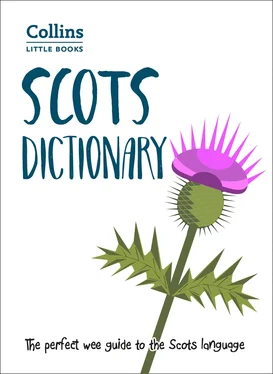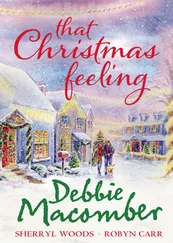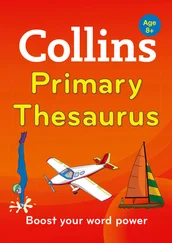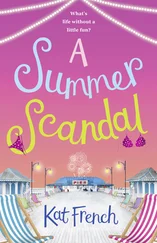Over the years, Scots has been much influenced by the English of England. Indeed, there has never really been a complete split: many Northern English dialects have descended from the same Northumbrian roots as Scots, with words such as bairn (a child or baby), fell (a mountain or hill), and flit (to move house) being found in Scots and Northern English alike. The main literary and political language of England (so-called Standard English), however, was one based on the East Midlands dialect spoken in London.
For many centuries, Scots and English developed in parallel: but the decision of the Church of Scotland to adopt a version of the Bible in English rather than in Scots following the Reformation, and the Union first of the Scottish and English crowns and later of the Scottish and English parliaments, meant that Scots came to have less and less social status. Many members of the Scottish nobility and middle-classes, eager to prove themselves good North Britons, made strenuous efforts to avoid all Scottish idioms and pronunciations.
But despite these attempts, Scots has remained in constant use, if mainly as a spoken language. The language of modern Scotland remains distinct from that of England, with its own words, idioms, and grammar. A typical recent edition of one of the Scottish national newspapers, for instance, mentions a depute fiscal at a Sheriff Court , a wasp’s bike , and a Church of Scotland clergyman who had demitted his post as a minister ; Scottish greengrocers sell syboes ; and in Scotland’s pubs, drinkers continue to get guttered on pints of heavy and wee goldies .
It should also be noted that the trade between Scots and English has not all been one way: such commonplace English words as cuddle , eerie , and greed were originally Scots.
The Dialects of Scots
Most authorities divide Scots into four groups of dialects, the larger of which have major subdivisions. There are many more subtle changes of dialect than can be covered here, and, particularly in areas where the majority of the population have lived locally all their lives, many people can distinguish between the speech of people from one town or village and their neighbours from a nearby area.
Central Scots, despite its name, is spoken throughout the area south and west of the Tay, with the exception of a small area in the Borders and Eastern Dumfriesshire. It is the most widely spoken form of Scots, and can be divided into East Central Scots, West Central Scots, and Southwestern Scots. One of the chief differences between them is that the vowel sound in words such as a’ , cauld , and wa (all, cold, and wall) is pronounced aw in the West and ah elsewhere. Throughout the Central Scots area, the -u- or -ui- or -oo- vowel in words such as guid (good), school, or moon is usually pronounced -i- (as in English hid ).
Northern Scots is the other main form of Scots, within which Northeastern Scots, spoken in the area north of Stonehaven and East of Inverness, forms a distinct dialect. The most immediately obvious feature of Northern Scots is that wh- at the beginning of a word is usually pronounced f- , for instance in fit (what) or fite (white). The vowel in guid , school, and moon is generally pronounced with an -ee- (as in English heed ), but in the Northeast when this sound follows a hard g or k it is pronounced -wee- ( gweed , skweel ). All forms of Northern Scots frequently drop the initial th in words such as the , this , and that . A noticeable grammatical feature of Northern dialects is the tendency to use this and that instead of these and those when referring to more than one person or thing: did you see that two mannies?
Island Scots.Orkney and Shetland formerly spoke a Scandinavian language known as Norn which had been superseded by Scots by the end of the 18th century. However many Norn words, such as voe (a narrow bay) have survived into the present-day dialects. Other distinctive features of Orkney and Shetland dialects are the preservation of the distinction between the formal you and the informal thou , and the pronunciation of th as d or t , as in tink (think), blide (blithe, happy), or da (the).
Southern Scots is spoken in Eastern Dumfriesshire and along most of the Border. Its speakers tend to say -ow and -ey at the ends of words, where people from elsewhere in Scotland would say -oo and -ee . It is sometimes referred to as the “yow and mey” dialect as a result.
The Highlands and the Western Isles, where Gaelic was (and some times still is) the main language, are generally described as speaking Highland English rather than Scots, although many Scottish words are in common use there.
The Vocabulary of Scots
The different histories of Scotland and England have meant that Scots and English have not only emerged from different Germanic dialects, but have absorbed words from different sources.
Much of Northern and Eastern Scotland was settled by the Vikings, and their Old Norse tongue has contributed terms such as kirk (church), brig (bridge), and lowp (leap), some of which also exist in Northern English.
Later, political and trading alliances with France provided words like ashet (a type of plate), fash (to bother or annoy), and gigot (a cut of meat).
Other trade links with the Netherlands endowed Scots, particularly its Eastern dialects, with a number of words, with howff (a pub), loon (a boy or young man), and pinkie (the little finger) all coming from Dutch or Flemish.
Gaelic was formerly much more widely spoken than it is today, and many words have passed from it into Scots. Some words, such as glen (a narrow valley), keelie (a generally derogatory term for an urban working-class man), and partan (a crab), are general Scots, others, such as bourach (a heap or a mess), cailleach (an old woman), and laroch (a ruin) are restricted to areas in the North or West where Gaelic was historically strongest or where there has been large-scale immigration from Gaelic-speaking areas.
Scots also shares a number of words, such as hooley (a wild party), with Irish English: over the centuries there has been a long tradition of migration between the two countries, to the extent that dialectologists regard the language of some parts of Northeastern Ireland as “Ulster Scots” rather than a dialect of Irish English.
Lastly, there are a number of words that have come into Scots, and particularly its Eastern and Northern dialects, from the language of the travelling people, for example barrie (excellent) and gadgie (a man or youth).
Using this book
Headwordsare shown in bold.
Variant Spellings.Modern Scots is more often spoken than written, and many words therefore have variant spellings based on the writer’s attempt to represent his or her pronunctiation of the word. The main entry for a word can be found at the spelling which we believe is most common in current use. We have tried to minimize the number of variants shown to make the text easier to follow, but where a number of spellings are in common use, the most common variant (or variants) is shown after the headword. For example:
cock-a-leekieor cockie-leekie Cock-a-leekieis soup made from a fowl boiled with leeks. Some recipes include prunes.
Читать дальше












